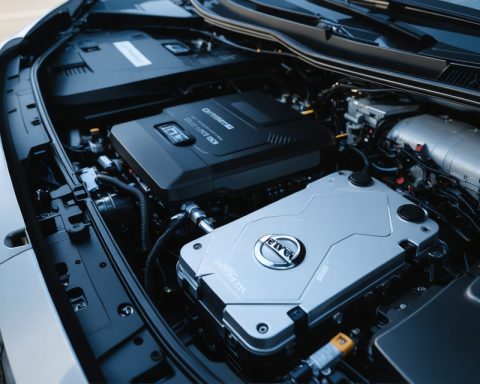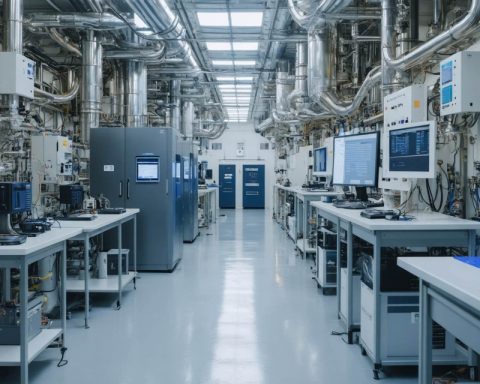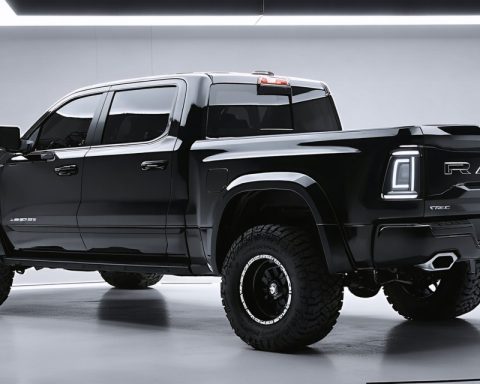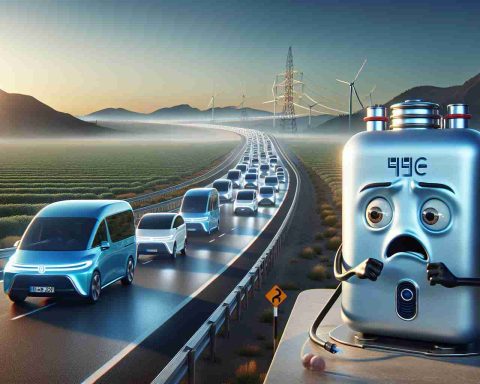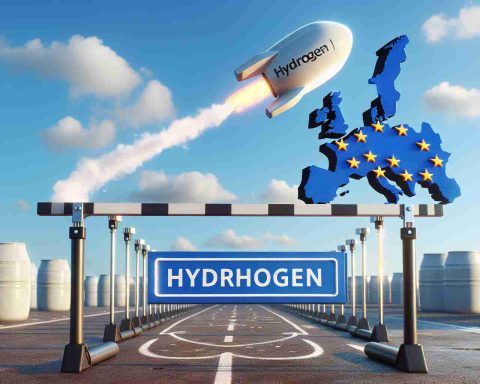Toyota’s Quiet Crisis in Hydrogen Vehicles
The clean energy revolution seemed poised to elevate hydrogen fuel cells as the future of sustainable transportation. For decades, hydrogen’s promise of zero emissions and quick refueling positioned it as a viable alternative. However, recent developments indicate that Toyota’s confidence in hydrogen technology is waning.
In 2024, hydrogen fuel cell electric vehicles (FCEVs) faced significant challenges, primarily in the United States where the market has failed to meet expectations. The closure of filling stations and skyrocketing hydrogen prices have made owning these environmentally friendly vehicles increasingly burdensome. Consequently, sales have stumbled, leaving the automotive giant far behind its predictions.
Recent sales figures reveal a startling decline. A mere 134 hydrogen cars were sold globally by Toyota in November, marking an 8.2% drop compared to the previous year. The year-to-date performance is even more alarming, showing a staggering 54% decrease in sales compared to last year, leaving 2024 potentially as the worst year for FCEV sales since 2017.
Infrastructure concerns remain a critical hurdle. Despite Toyota’s investment in refueling networks across key regions, progress has been sluggish, especially in comparison to the rapid expansion of electric vehicle charging stations. Automakers like Honda and BMW are still optimistic about hydrogen’s potential, but for Toyota, the hope of a hydrogen vehicle renaissance appears to be dimming.
The Future of Hydrogen Vehicles: Beyond the Hurdles
As the automotive industry grapples with the decline of hydrogen fuel cell electric vehicles (FCEVs) like those produced by Toyota, the implications stretch far beyond individual companies. Hydrogen technology’s challenges resonate across societal, cultural, and economic landscapes, potentially altering the trajectory of clean energy adoption.
The struggle of hydrogen vehicles in the market highlights a broader tension within the transition to sustainable transportation. The culture of innovation is being tested, as consumers may lose faith in alternatives to battery electric vehicles (BEVs), which have seen surging popularity and support from extensive charging infrastructure. The hesitance surrounding hydrogen could slow momentum in broader clean energy initiatives, affecting societal sentiment toward upcoming technologies.
The economic impact is equally significant. Investment in hydrogen technology remains high; however, inadequate infrastructure may deter potential buyers, hindering job creation in this sector. The global economy stands at a crossroads, deciding whether to double down on hydrogen or focus on electric solutions. Countries that have invested heavily in hydrogen, like Germany and Japan, may face reassessments of their energy strategies, influencing global energy markets.
Furthermore, the environmental implications could be profound. If society prioritizes the widespread adoption of BEVs over FCEVs, the balance of energy demand may shift, emphasizing the importance of renewable energy generation to meet increased electricity needs. The long-term significance of these trends may redefine what a sustainable vehicle looks like, perhaps relegating hydrogen to a niche player rather than a mainstream solution. As we look ahead, the path forward for hydrogen vehicles will require innovative strategies and collaboration among stakeholders to harness its potential fully.
Toyota’s Hydrogen Vehicle Strategy: Crisis or Opportunity?
The Decline of Hydrogen Fuel Cell Vehicles
The promise of hydrogen fuel cell electric vehicles (FCEVs) has faced significant challenges as the clean energy revolution accelerates. Once viewed as a leading contender for sustainable transportation, Toyota’s reliance on hydrogen technology shows signs of faltering in the face of mounting obstacles.
Market Trends and Insights
As of 2024, hydrogen fuel cell vehicles have struggled to gain traction in the United States, with the market falling short of optimistic forecasts. Several major factors contribute to this downturn:
– Infrastructure Limitations: The scarcity of hydrogen refueling stations remains a significant barrier. Despite substantial investments from Toyota in creating a refueling network, the pace of expansion has not matched that of electric vehicle (EV) charging stations. Currently, the U.S. has around 50 hydrogen fueling stations, compared to over 100,000 EV charging points, revealing a stark disparity affecting consumer adoption.
– Rising Costs: The production and distribution costs of hydrogen have surged. With prices skyrocketing, potential consumers find FCEVs increasingly unaffordable. This is particularly troubling when juxtaposed with the falling costs of battery electric vehicles (BEVs), which have prompted many buyers to reconsider their options.
Sales Performance
Recent data highlights a significant decline in FCEV sales, marking a critical point for Toyota’s hydrogen strategy:
– In November 2024, Toyota’s global sales of hydrogen vehicles plummeted to just 134 units, showing an 8.2% decrease year-over-year.
– The cumulative sales for the year reflect an alarming 54% drop from 2023, indicating a potential crisis in Toyota’s hydrogen vehicle strategy.
Pros and Cons of Hydrogen Vehicles
Pros:
– Fast Refueling: Hydrogen vehicles can be refueled in a matter of minutes, creating a competitive edge over battery electric vehicles, which often require longer charging times.
– Zero Emissions: FCEVs emit only water vapor, making them environmentally friendly for sustainable transportation.
Cons:
– Limited Infrastructure: The current lack of hydrogen fueling stations restricts usability and convenience.
– High Costs: Increasing production costs make hydrogen less competitive compared to battery electric alternatives.
Future Predictions and Innovations
The outlook for hydrogen vehicles suggests a continued struggle unless substantial changes occur in infrastructure and pricing. Experts believe that advances in hydrogen production technologies, such as green hydrogen derived from renewable sources, may help reduce costs and improve adoption rates in the future. However, current trends indicate a crucial shift towards battery electric solutions for sustainable transport.
Comparisons with Electric Vehicles
In comparing FCEVs with BEVs, several key differences arise. While both are zero-emission technologies, battery electric vehicles benefit from a more extensive network of charging infrastructure, lower operating costs, and steadily declining vehicle prices. The OEMs that first invest in fast-charging networks may lead the market, highlighting the need for strategic pivots within hydrogen strategies.
Conclusion
The situation for Toyota and hydrogen fuel cell vehicles illustrates the complexities of the green transition and the challenges of competing technologies. With dwindling sales and infrastructure hurdles, the automotive giant must reevaluate its approach or risk falling further behind in the rapidly evolving clean energy landscape.
For those interested in going deeper into Toyota’s hydrogen initiatives, visit Toyota Global.

